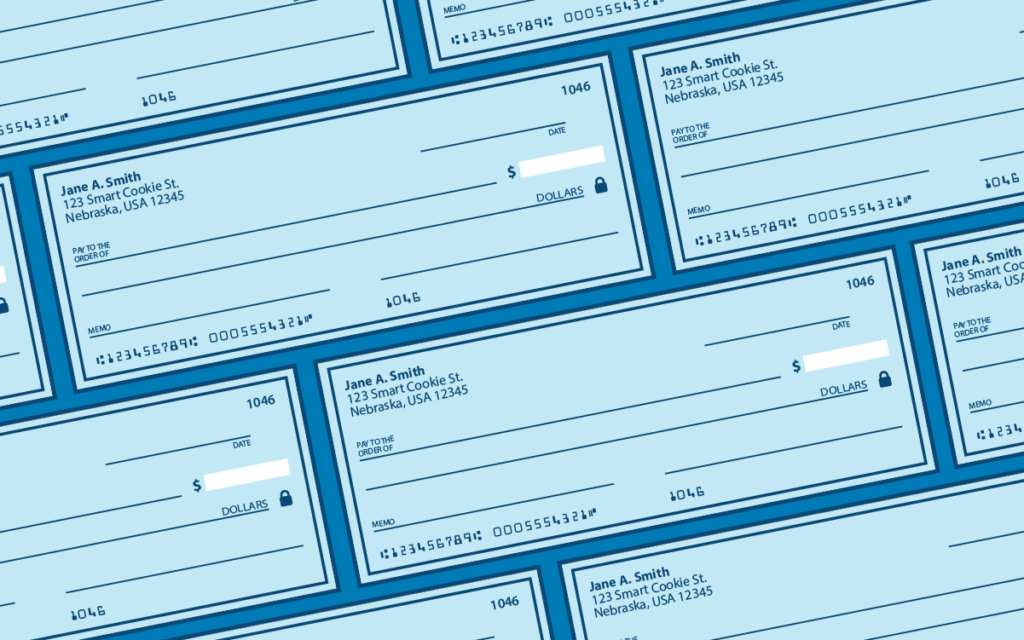Smart tips for setting up your checking account

These days, folks are using credit and debit cards just about everywhere – from a major purchase to a cup of coffee. Many of us don’t even carry a checkbook anymore. But the venerable checking account is still a useful, flexible everyday tool for personal and business transactions. And it’s worth a bit of attention to make sure yours is set up to serve you best.
Keep reading for some definitions and tips that will give you the right balance of security, accessibility, and convenience.
Who owns a checking account?
An individual checking account is owned by only one person, in this case you. The account itself – and the money within it – are your property, and only you are authorized to withdraw funds or write checks on the account. This standard arrangement gives you a lot of security, but it might not offer as much flexibility as you would like. For one thing, no one else can use this account to conduct business on your behalf. Just as important, when an account owner dies, the ownership of the funds passes directly to the account owner’s estate (specific laws will differ from state to state).
To avoid these complications, there are three things you can do:
- Designate signers
- Designate beneficiaries
- Designate your account Payable on Death (POD)
What are signers?
People designated as authorized signers typically can make deposits and withdrawals (including writing checks and using the account’s debit card). Authorized signers can only act on behalf of the account owner, and they have no personal ownership rights to the assets. When the account owner dies, the authorized signer’s authority ends.
What are beneficiaries?
Just as with a life insurance policy or other assets covered in your estate, beneficiaries are the people to whom your assets will pass upon your death. This does not give them any authority over the account during your lifetime, but it does ensure that the assets will go directly to them upon your passing, rather than going to your estate before being distributed later on.
Who should be a signer or beneficiary on a bank account?
Usually the account owner chooses a spouse, relative, business partner, or close friend as an authorized signer. To add an authorized signer to an account, both you and the individual will usually need to go the bank to fill out an application and provide proper identification.
Often, the same people who are designated as signers will also be named beneficiaries. This makes sense, especially for seniors. For example, your children may need to be able to sign checks on the account to help you conduct personal business. You may also want the funds in the account to go to these same children after your death. Nonetheless, a signer and a beneficiary are two distinct entities, and you want to be sure you designate the same people to both roles if this is what you intend.
Is an authorized signer an account owner?
No. An Authorized Signer designated by individual or joint account owners may transact business on behalf of the owner(s), but does not own the account for his or her own personal benefit.
What is POD?
POD stands for Payable on Death. We can help you complete the appropriate paperwork to put a POD status in place for your account. This allows the funds in your account to be paid directly to your beneficiaries after your death, rather than being transferred to your estate. Either way, the money will eventually go to your beneficiaries, but without the POD designation, it could be tied up in probate for months or even longer while your estate is being settled. This simply makes everything easier and much faster.
What happens to an account at death?
If you established a POD status and named one or more beneficiaries, the bank releases the funds to them once it learns of your passing. After that, the financial institution typically closes the account. If you did not name a beneficiary, the process can be more complicated.
Are bank accounts automatically frozen when someone dies?
Banks freeze access to deceased accounts, such as savings or checking accounts, pending direction from an authorized court. Banks generally cannot close a deceased account until after the person’s estate has gone through probate or has otherwise settled.
If you’d like to talk more about checking accounts, designating signers and beneficiaries, or anything else, just call 800-695-2045 and talk to one of our experts. After all, keeping you smart is what we’re about!
